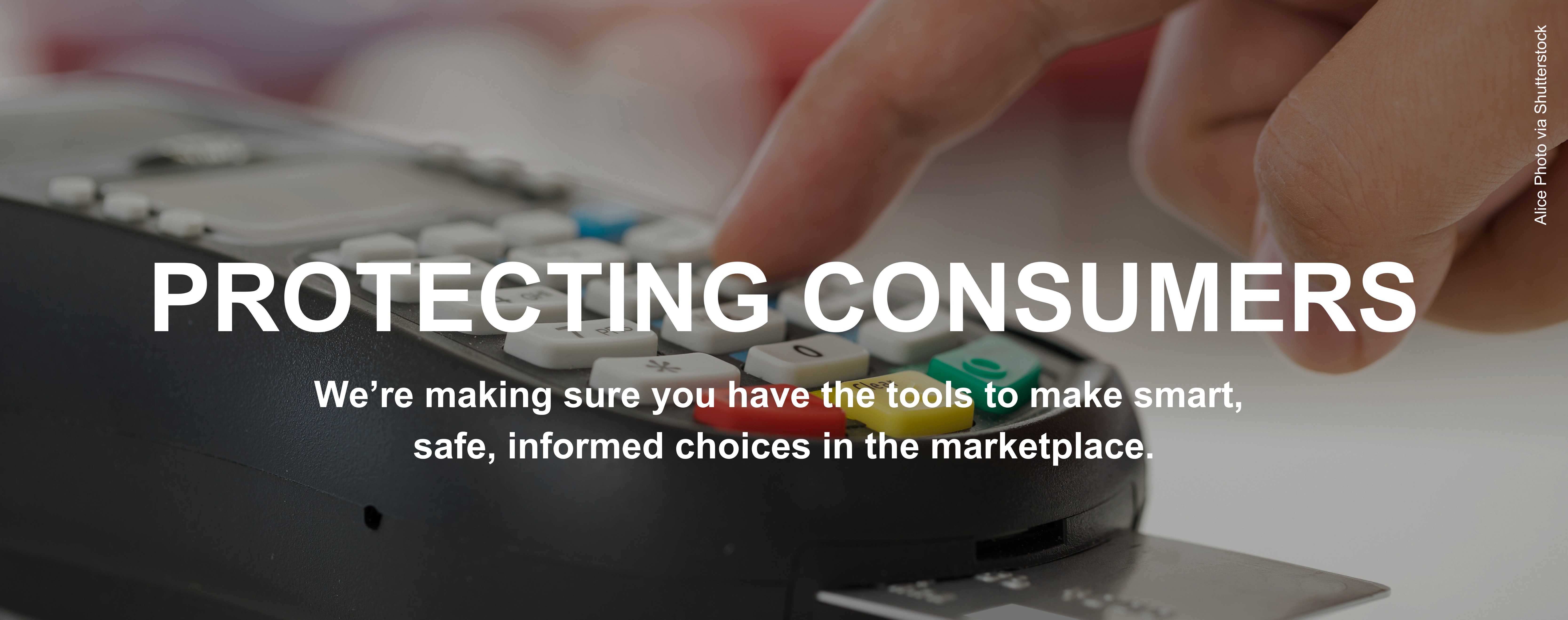Protecting consumers from unfair practices
In some ways, it has never been easier to be a consumer. A global marketplace is just a click away, and millions of products and services can be delivered straight to our homes. But today’s marketplace is also full of hidden dangers that threaten our health, safety and financial security.
We’re working to make sure consumers are informed and empowered to protect themselves in today’s rapidly changing marketplace. Our researchers are working to get rid of unsafe products and expose unfair practices, and we’re advocating for needed reforms to state and federal consumer protection laws.
Some of our recent work include:
- Protecting Americans from unfair surprise medical bills. Before 2022, 1 in 5 Americans who visited an emergency room or had surgery got stuck with a surprise medical bill — even if they made sure to go to a hospital in their insurance network. We put an end to one million surprise bills every month when we won passage of the federal No Surprises Act. Now it's time to extend those protections beyond the hospital to ground ambulances. About 50% of people who need emergency transport ride in an ambulance that is not part of their insurance plan's network - and that means those patients could receive an ambulance surprise bill of hundreds or thousands of dollars. We're working in states and the halls of Congress to stop ambulances from sending these costly surprise bills.
- During the COVID-19 pandemic, we called on the U.S. Department of Transportation (DOT) to help get people their money back — and to keep airlines from deceptively steering consumers toward ticket vouchers when they have a right to a full refund. Travelers who canceled their plans to protect public health shouldn’t lose out on their money for making the responsible decision.
- Standing up to predatory loans. Right now, high-cost payday lenders are allowed to give loans with triple-digit interest rates to people with low but steady incomes — including veterans. Thanks to this practice, lenders can demand sums of up to three times the amount of the original loan. This isn't right and shouldn't be allowed — we're urging our U.S. senators to pass the Predatory Lending Elimination Act to help keep these predatory lending practices away from our country’s most vulnerable populations.
To protect consumers in the financial marketplace, we're working to reform credit bureaus, stop predatory loan sharks, end unfair banking practices and more.

